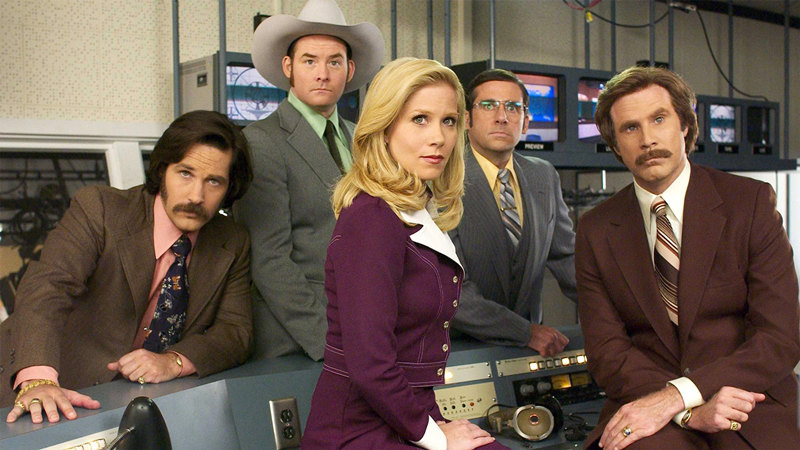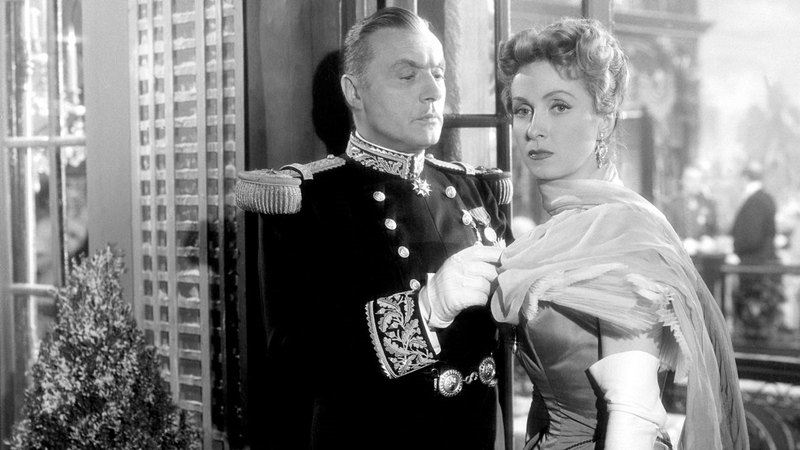“Do not forsake me, Oh my darlin’, On this our weddin’ day-ee, ….” Tex Ritter, 1952.
The song became as popular as the movie. “High Noon” is one of those landmark films that stand out in memory for a whole lot of things, not the least of which is its hit theme song, the start of a trend that continues to this day. The film is done in almost documentary style in close to real time; it plays on the psychology of its characters and situations; it’s an oater with insight and introspection; and it emphasizes thought over action. It is, in short, among Hollywood’s first so-called “adult” Westerns, a winner of four Academy Awards (Best Actor, Editing, Music, and Song), and a classic in its field. To understate the subject, the movie makes a worthy and welcome addition to any DVD collection.
I don’t suppose I need to tell you much about what happens leading up to the most famous showdown in movie history. The story begins at 10:35 on a Sunday morning. Gary Cooper plays marshal Will Kane, who is getting married and retiring his badge the same day. His wife, played by Grace Kelly in her first starring role, is a Quaker and making him give up his gun. But things aren’t always so easy, because coming into town on the noon train is a convicted murderer, Frank Miller, just released from prison and sworn to get even with Kane, the man who put him away. Miller is joined by his brother and two old cronies, also bent on revenge. The marshal tries but cannot find anyone in town to help him out, including his own deputy. They’re all afraid. So he must face Miller and his gang alone.
Cooper is superb as the closemouthed lawman. But the marshal is no hero. He readily admits he’s afraid. He just has to do what a man has to do. He knows his responsibility is to stay and fight these evildoers. Besides, he knows if he runs, the villains will follow him. No one else understands his motives for sticking around, not even his new wife, who deserts him along with the others. It’s the ultimate test of the mythic Code of the West: One man stands up for right against all odds, because it’s the right thing to do.
Unforgettable images abound: The clocks, of course; the railroad tracks running straight into town; the cloudless sky and deserted streets; the stark black-and-white photography highlighting the ultimate fight between good and evil.
And there’s a superlative supporting cast: Kelly, quiet and determined; Lloyd Bridges as Kane’s hotheaded young deputy; Thomas Mitchell as the town mayor; Katy Jurado as the woman everybody loves; Otto Kruger as the Judge; Lon Chaney, Jr. as Kane’s old mentor; Harry Morgan as a cowardly friend; and the quartet of bad guys: Ian MacDonald, Sheb Wooley, Robert Wilke, and Lee Van Cleef. The picture was produced by Stanley Kramer and directed by Fred Zinnemann; screenplay by Carl Foreman; music by Dimitri Tiomkin.
Video:
The THX-mastered transfer varies in picture quality. It starts out rather grainy but quickly clears up and for most of the film remains superbly clean and delineated. As I had never seen the movie in a theater, only on tape, I thought maybe the opening graininess was a part of the film, done for effect. Then about sixty minutes or so in, the image gets grainy again and stays that way for maybe five minutes before clearing up for the remainder of the time. It’s odd, but not terribly disturbing.
Audio:
The sound is a typical monaural of its day, limited in range but clean and true. There are no reasons besides a few gunshots to have it any other way.
Extras:
A thirty-minute documentary on the making of “High Noon,” narrated by film critic Leonard Maltin, explains why the film is so important. It’s must viewing. Along with the featurette, Artisan provide various language and subtitle options, chapter stops, and a trailer; a nice package.
Parting Thoughts:
“High Noon” went against the odds at a time when Westerns were supposed to be about nonstop action and adventure. Instead, this one was a morality tale, heightened at the time of its release by similar events in the real world–the McCarthy hearings, the Hollywood blacklist, the cowardly stance of many people in the film industry who failed to speak up for what they knew was right. By today’s standards, some of the acting may appear a little corny and some of the music may be a tad melodramatic, but overall “High Noon” stands as tall today as it did a half a century ago.


